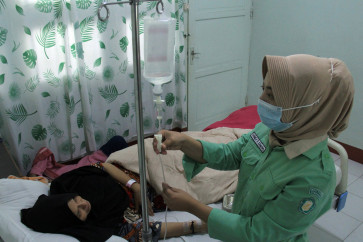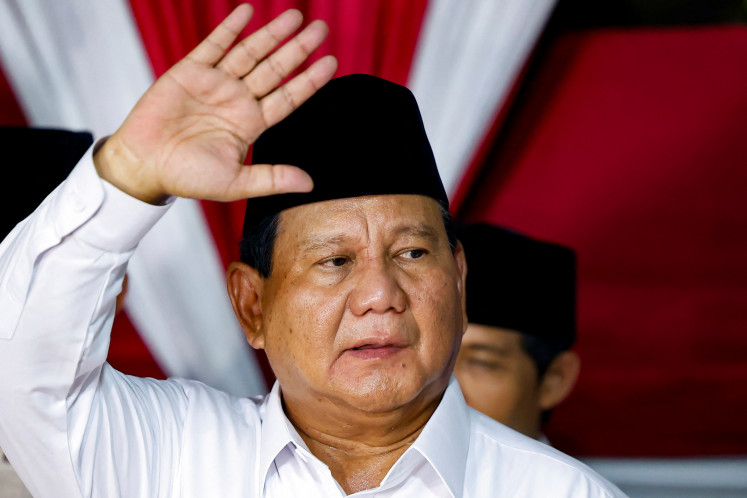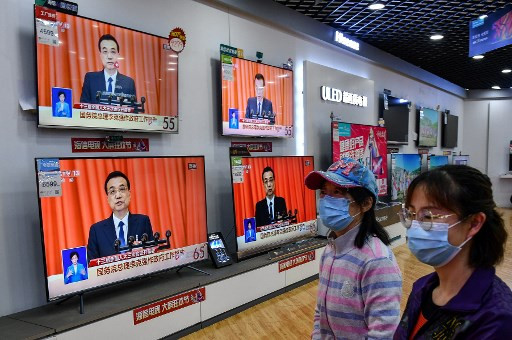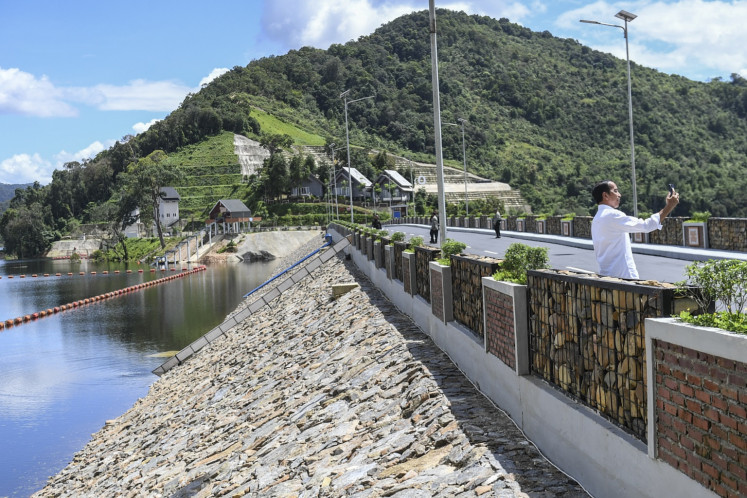Hospitals ‘collapse’ as second wave engulfs Indonesia
Change Size
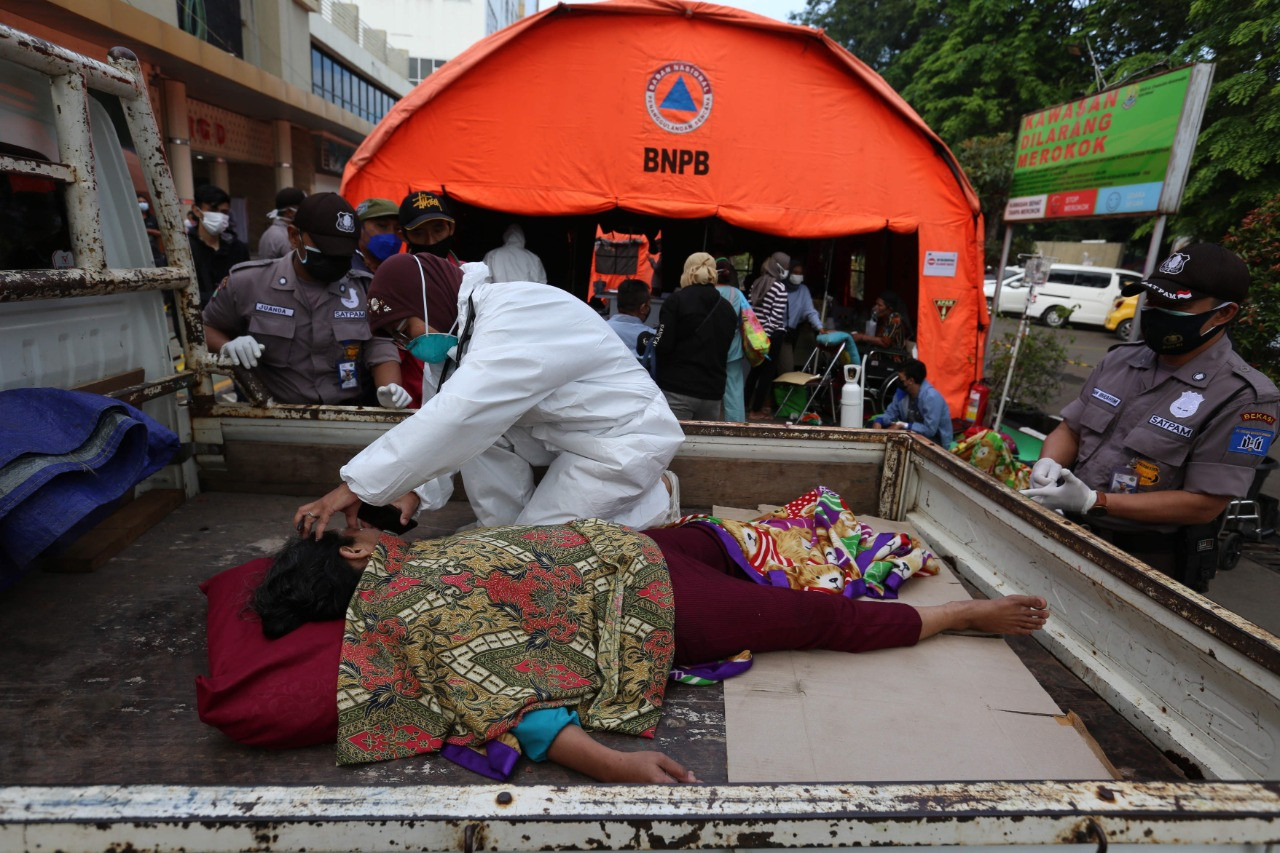 A nurse from Chasbullah Abdulmajid General Hospital in Bekasi, West Java, examines a suspected COVID-19 patient who is lying on the back of a pickup truck on June 25, 2021. The patient's family used the truck to transport her to the hospital because no other vehicles were available. She had experienced breathing difficulties, vomiting and fatigue for days, her family said. (JP/PJ Leo)
A nurse from Chasbullah Abdulmajid General Hospital in Bekasi, West Java, examines a suspected COVID-19 patient who is lying on the back of a pickup truck on June 25, 2021. The patient's family used the truck to transport her to the hospital because no other vehicles were available. She had experienced breathing difficulties, vomiting and fatigue for days, her family said. (JP/PJ Leo)
I
ndonesia’s COVID-19 cases soared to levels not seen before this week, forcing some hospitals to set up emergency tents to cater to a deluge of patients seeking care after potentially contracting the Delta variant of the virus.
The nation had at least 181,435 active COVID-19 cases on Friday, the highest number recorded since the pandemic first emerged and after posting four-digit daily increases five days in a row. The national COVID-19 task force reported 18,872 new cases on Friday, the second-highest number after only a day earlier with 20,574 cases. From June 21 to 25, the country recorded 82,958 new cases and 1,709 deaths.
With the government refusing to impose large-scale social restrictions (PSBB) and instead opting to tighten micro-scale public activity restrictions (PPKM Mikro) to weather the current wave, concerns have been raised over whether the healthcare system can hold out before the infection curve reaches a plateau.
Emergency tents
Harrowing images and videos of overloaded hospitals in Greater Jakarta have been circulating on social media as families of COVID-19 patients reported difficulties in finding available beds and ICUs at referral hospitals. One video shows a suspected a coronavirus patient lying on the ground next to an emergency tent as another is being transported on the back of pick-up truck at the Bekasi regional hospital.
Suasana RSUD Bekasi hari ini.
Kalau masih ada yang bilang masalah #COVID19 ini dibesar-besarkan, maka nuraninya patut dipertanyakan.
Kita doakan yang sakit segera diberi kesembuhan 🙏🏽 pic.twitter.com/IZ2SpLebr0
— b i l i (@berlianidris) June 25, 2021
The video provides a telling image of the condition of the country’s healthcare system as it battles a surge in cases that has been fueled by the Delta variant, which is set to dominate global coronavirus infections.
As of Friday, Jakarta has 497 hospital beds left for COVID-19 patients, with a bed occupancy rate of at least 90 percent. Meanwhile, around 90 percent of hospital beds for COVID-19 patients are occupied in West Java, according to data from the provincial administration's virus information center (Pikobar) on Thursday.
“With the bed occupancy rates at some hospitals [in Bandung] already exceeding 100 percent, we can say [our hospitals] have already collapsed,” said Indonesian Medical Association (IDI) West Java chapter head Eka Mulyana.
Read also: Jokowi sticks to his guns as daily COVID-19 cases soar past 15,000
The current wave of infections has taken a toll on health workers, with many testing positive and even losing their lives. According to LaporCovid, 981 healthcare workers had died of COVID-19 as of Friday. The IDI provided similar figures, saying 949 healthcare workers had died as of Thursday.
At least 31 doctors died in the past two months according to the IDI's figure, 24 of whom died this month only.
More hospital beds
Health Minister Budi Gunadi Sadikin said the government was planning to provide more hospital beds, especially in Jakarta, in response to the reported high bed occupancy rates.
“We are working so that the number of available beds will be able to keep up with the rising number of cases,” Budi told reporters in an online press briefing on Friday.
He said the government was reserving all beds at Fatmawati Hospital, Sulianto Saroso Hospital and Persahabatan Hospital in Jakarta for COVID-19 patients only.
Read also: Delta variant behind Indonesia’s recent COVID-19 surge, officials say
“There will be hundreds of new beds, complete with healthcare workers to treat COVID-19 patients in Jakarta,” Budi said, without specifying the exact number that would be available.
He added that all beds in emergency hospital installations (IGD) in Jakarta would also be reserved for COVID-19 patients, and tents would be constructed at hospitals to treat non-COVID-19 patients.
Ini kondisi di RSAD Gatot Subroto Jakarta, IGD penuh sampai overload pic.twitter.com/gBNvNZvrH4
— -27° F (@dinginansikapmu) June 25, 2021
The Nagrak low-cost apartment complex (Rusunawa) in North Jakarta and Pasar Rumput Rusunawa in South Jakarta will also be converted into COVID-19 isolation facilities, with a projected capacity of at least 4,000 and 3,000, respectively.
Budi said both apartment complexes would be reserved for asymptomatic and patients with light COVID-19 symptoms, while the former athletes village emergency hospital in Kemayoran, Central Jakarta, which had a capacity of at least 7,000 patients, would treat moderate and severe cases.
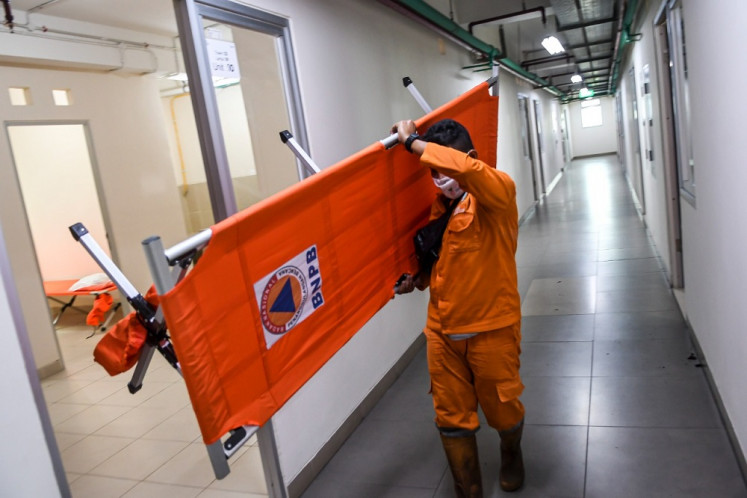
Not enough
Experts, however, have expressed doubts that adding more beds will prevent a total collapse of hospitals and healthcare facilities.
Masdalina Pane of the Indonesian Epidemiologists Association said that providing more beds would only delay the inevitability of hospitals becoming overwhelmed with COVID-19 patients. “We can appreciate that the government is adding more hospital beds, but how long can we keep this up?”
She argued that more hospital beds meant that more healthcare workers and more ICUs would be needed to treat patients with severe cases. To prevent hospitals from collapsing, the government would have to focus on preventing more infections by severely reducing people’s mobility and conducting more rigorous contact tracing, she said.
Read also: Bali vaccine tourism plan meets skepticism amid COVID-19 surge
Doctors and epidemiologists have called on the government to impose a PSBB or a lockdown to relieve the burden on hospitals and prevent a rising fatality rate.
IDI chairman-elect Adib Khumaidi echoed Masdalina, saying that adding more hospital beds was no guarantee that existing healthcare facilities would be able to cope with incoming COVID-19 patients.
“This is already a very critical situation that cannot be resolved by simply adding more beds,” he said.
Adib warned that adding hospital beds would also mean adding more working hours for health workers and increasing their exposure to COVID-19.
Enforcing PPKM Mikro
President Joko “Jokowi” Widodo has called for a coordinated effort to cope with the second wave of infections, asking regional governments and the public to adhere to the PPKM Mikro measures set by the central government.
“We need to ensure that the measures are being implemented, supervised and controlled on the ground. It’s useless to create a policy if its implementation on the ground is not enforced,” Jokowi said during a visit to community unit (RW) 1 in Rawasari, Cempaka Putih, Central Jakarta, on Friday, as shown on the Presidential Secretariat YouTube channel.
He insisted that the PPKM Mikro was the right policy to address the second wave without having to “kill the economy of the people”.
Doctors and epidemiologists, however, are not convinced that the policy, which is being implemented at neighborhood unit (RT) and RW levels, will be effective in slowing down the spread of the virus.
Read also: Indonesia sticks with ‘micro-lockdown’ amid COVID-19 tsunami
Adib warned the government that the crisis on Java Island could spill into other islands with less developed healthcare systems.
“As long as strict travel restrictions are not in place, bed occupancy rates and positive cases will increase on other islands, such as Sumatra and Sulawesi,” he said.


